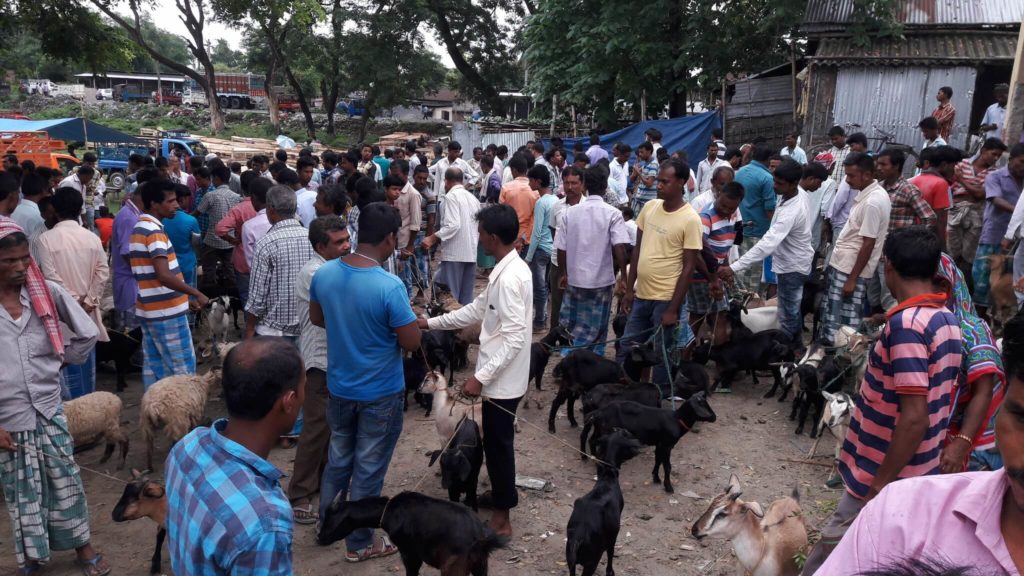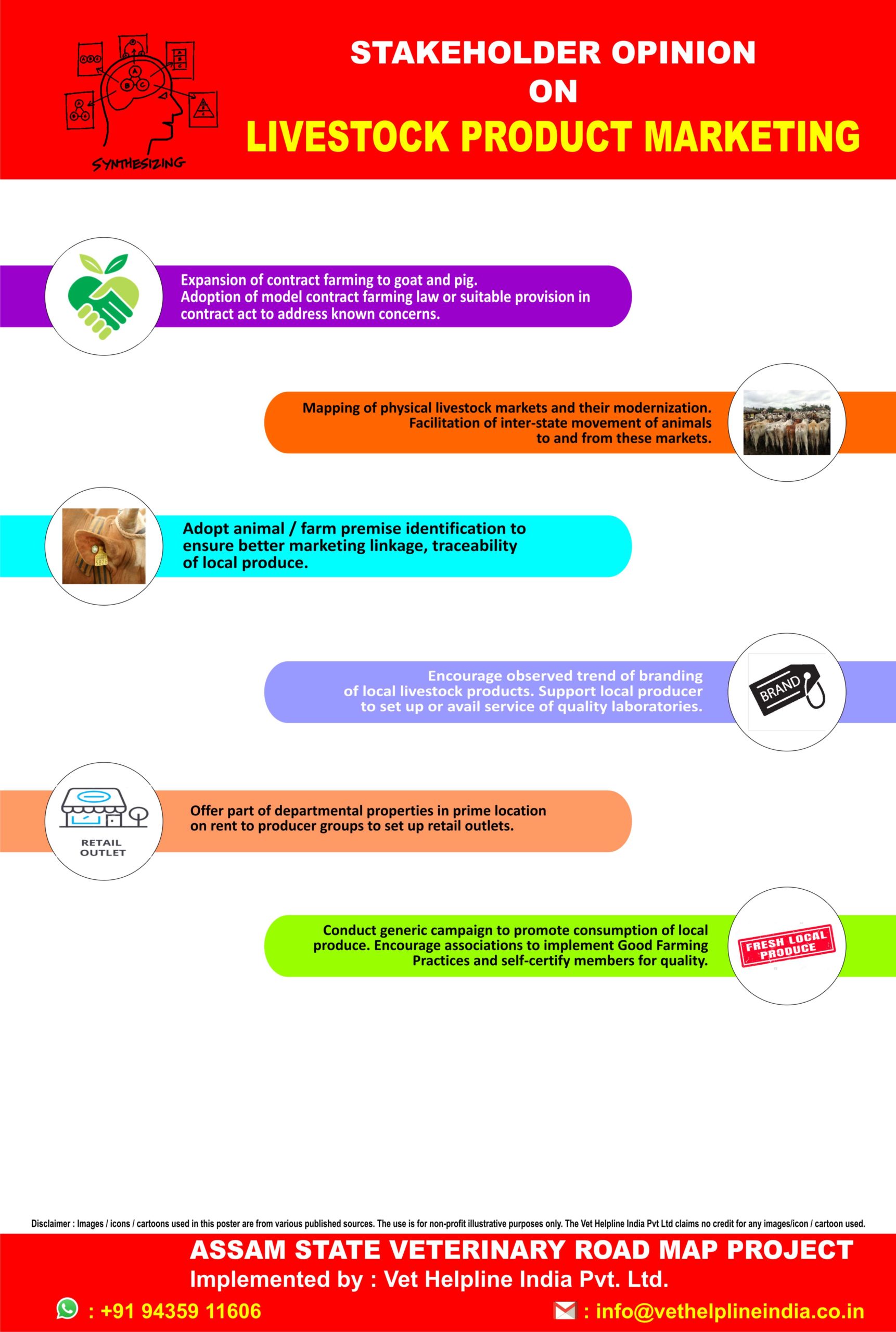The summary suggestion of Assam Vet Road-map project related to Livestock and Livestock product marketing in Assam
Assam State Vet Road map Project
The following note is published coinciding with legislative assembly discussion on Assam Agricultural Produce and Livestock Marketing (Promotion and Facilitation) bill 2020
Strengthening livestock product marketing:
The successful marketing of livestock products is an important element for sectoral development. As high as 29 percent of market milk samples tested in Assam during 2017 (FSSAI) do not conform to standards. Interestingly most of the non-confirmation is due to low fat and SNF. Not much data is available to comment on standards at the procurement centres. However, it can be safely assumed that standards (Fat & SNF %) at the producer level are not up to the mark. Similarly, the microbiological quality of various local livestock products needs much improvement. Standard and quality product is essential to ensure price realization and to survive growing market competition. The role of publicly funded agencies within the state is largely limited to helping farmer groups set up retail outlets etc. The need is for holistic support to ensure better price realization and income generation by farmers. Programs should support aggregation, grading, local branding, generic promotion of local produce and promotion of by-product industries, etc. Interference of publicly funded agencies to control the market and in fixation of the price should be discouraged. However, public investment can go into real-time monitoring of the demand, standards, cost of production, and marketing practices. Such monitoring supports the implementation of the law to ensure healthy competition and to protect the interest of all within the value chain. It is also helpful to declare and publicize a realistic minimum price of livestock products and farm inputs specific to geographical location and product standards for the empowerment of farmers. It should be done ensuring safeguards to prevent the suggested price from becoming the maximum sellable price. The augmentation of private investment in modern processing can improve the marketing scenario. Promotion of the processing sector should also accompany a generic campaign for public awareness on the hygiene of processed products and curb on wet roadside markets. Careful production planning by industry association and farmer collectives is also important to prevent surplus that leads to a fall in price. Assam, though, has a high percentage of the non-vegetarian population; people have many options and preferences, including fish as an alternative to meat. With competition on the cost of production, growing corporate investment on the integrated operation, fluctuating prices of inputs makes it imperative for the government to handhold and support small farmers to form producer groups for scale in operation and market-led collective actions, e.g., collective procurement of feed, etc. The state should facilitate contract farming by adopting a law that ensures fair market play and protection of exploitation of local farmers. In the context of Assam, support to cottage milk processing, production of traditional meat products, and local economic use of byproducts assumes much significance.

Goat Market in Darrang District of Assam ( Source: The Sentinel )
Strengthening of physical livestock markets: The physical livestock market helps in the live animal trade, prevention of inbreeding, and the disposal of culled animals. Better management of physical livestock markets is essential for animal disease control. The government should invest in mapping and bio-security improvement of physical livestock markets and animal movement routes.




